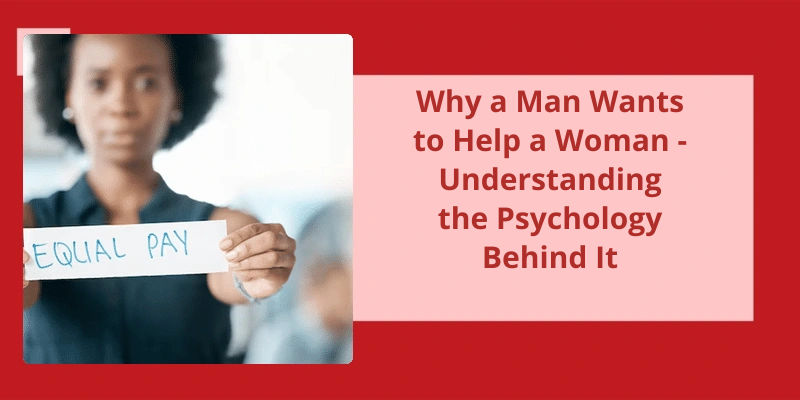The phrase "for a while" is often used casually in everyday conversations, but it’s actual duration can vary depending on the context it’s used in. Whether it implies a significant amount of time or is used to convey a shorter duration ultimately hinges on the specific circumstances dictating it’s usage.
What Is Difference Between a While and Long Time?
The phrase “for a while” is often used to indicate a period of time that’s longer than just a momentary or brief duration. While the exact length of time can vary depending on the context, it generally suggests a more substantial length of time than phrases like “just a second” or “just a minute.”. However, it doesn’t necessarily indicate a specific or extended duration.
For instance, if someone says, “Ill be there in a while,” they’re generally implying that it will take them longer than just a few moments to arrive. The precise length of time can be open-ended or vague, as it depends on the individuals interpretation.
For example, if someone says, “I havent seen them for a while,” it suggests a considerable amount of time has passed since their last meeting, although it doesn’t provide a specific timeframe.
Overall, the difference between “a while” and “a long time” lies in the level of emphasis and context.
The Psychological Perception of Time and It’s Relation to the Phrases “A While” and “A Long Time”
- The concept of psychological perception of time
- The subjective experience of time
- Relation between psychological perception of time and the phrases “a while” and “a long time”
- The ambiguous nature of these expressions
- Individual variations in time perception
- Cognitive factors influencing the perception of time
- Psychological studies on time perception
- Time perception and aging
- Cultural influences on the perception of time
- Effects of technology on time perception
Is for a while the same as for a time? Although these phrases may seem interchangeable, there’s a subtle distinction in their meaning. “For some time” conveys a significant length of time, encompassing hours, days, or even years. On the other hand, “for a while” typically denotes a longer duration than a short time, often referring to minutes, hours, or days. However, it doesn’t necessarily imply an extended period, but instead suggests an adequate length of time. For instance, you might hear someone say, “I’ll be here for a while if you need me.”
Is for a While the Same as for a Time?
The phrase “for a while” can be tricky to define precisely. While it may not necessarily refer to an extended period, it typically implies a longer duration than just a brief moment. It often pertains to minutes, hours, or even days, rather than mere seconds. For instance, if someone says, “Ill be here for a while if you need me,” it suggests a sufficient amount of time, possibly indicating availability for an extended period.
On the other hand, the expression “for some time” carries a different connotation. It implies a significant length of time, which can range from hours to days, or even years. Unlike “for a while,” “for some time” specifically refers to a substantial duration. For instance, if someone read a book “for some time,” it would indicate an extended period of reading, perhaps several hours or even days.
It’s worth noting that the specific length of time implied by these phrases may vary depending on the context and personal interpretation. However, by understanding the general usage and connotations, one can grasp the intended meaning when encountering these expressions in conversation or writing.
As the concept of “a while” doesn’t come with concrete time limits, it’s duration is subjective and can vary depending on the situation. When someone says, “I’ll be back from the grocery store in a while,” it implies that the person will return within a reasonable timeframe, but the exact duration remains unspecified.
How Long Is a While in Time?
In this case, a while might refer to the time it takes to complete the grocery shopping, which could range from half an hour to one hour. It suggests a relatively short duration.
On the other hand, if someone says, “I havent seen him in a while,” the duration implied could be longer. It might suggest weeks or even months since their last encounter. Here, a while would indicate a relatively extended period of time.
The notion of what constitutes a while largely depends on the context and the perspective of the individual. For someone awaiting the arrival of a loved one, a while might feel like an eternity, even if it’s only a matter of minutes.
Additionally, cultural factors and personal attitudes towards time can influence the interpretation of a while. In some cultures, a while might be understood as a shorter period, while in others, it might be seen as a longer duration.
Ultimately, the concept of a while remains flexible and subjective. It doesn’t have a fixed definition or standard measure. Instead, it adapts to the circumstances and the perception of time for each individual or situation. Therefore, it’s essential to consider the context and the specific intents and expectations when interpreting the meaning of “for a while.”
How Does the Concept of a While Change in Different Situations?
In different situations, the concept of “a while” can vary in length. It’s a relative measure of time that depends on the context and can be interpreted differently by individuals. For example, waiting for a while in a doctor’s office may feel shorter compared to waiting for a while in a traffic jam. Similarly, a while may be shorter when referring to a temporary delay in plans, but longer when describing a lengthier period of time. Therefore, the duration of a while is subjective and can vary based on the specific circumstances.
However, it’s important to note that the word “awhile” doesn’t imply permanence or extended duration. Instead, it suggests a temporary or brief time frame.
Does Awhile Mean Forever?
The term “awhile” doesn’t imply permanence or eternity, as it’s clearly defined as an adverb describing a brief or limited duration. It denotes a transient state or a temporary period. When using “awhile” in conversation or writing, it’s important to understand that it specifies a concise span of time rather than an extended one.
The common definition states that it describes a temporary or short duration.
It’s crucial to use language accurately to avoid misunderstandings. It’s essential to adhere to the intended meaning and connotation of words to communicate effectively and avoid confusion.
It doesn’t carry connotations of permanence or an extended period. Understanding the precise meaning of words helps individuals convey their thoughts accurately and prevent semantic confusion.
Source: What does “a while” mean in time? – Quora
Conclusion
While it doesn’t necessarily imply an extensive duration, it often implies a longer period than "just a second" or "just a minute," particularly when the emphasis is placed on the word "while." Granted, the length of time encompassed by this phrase can vary greatly, from a few minutes to a much lengthier interval.






